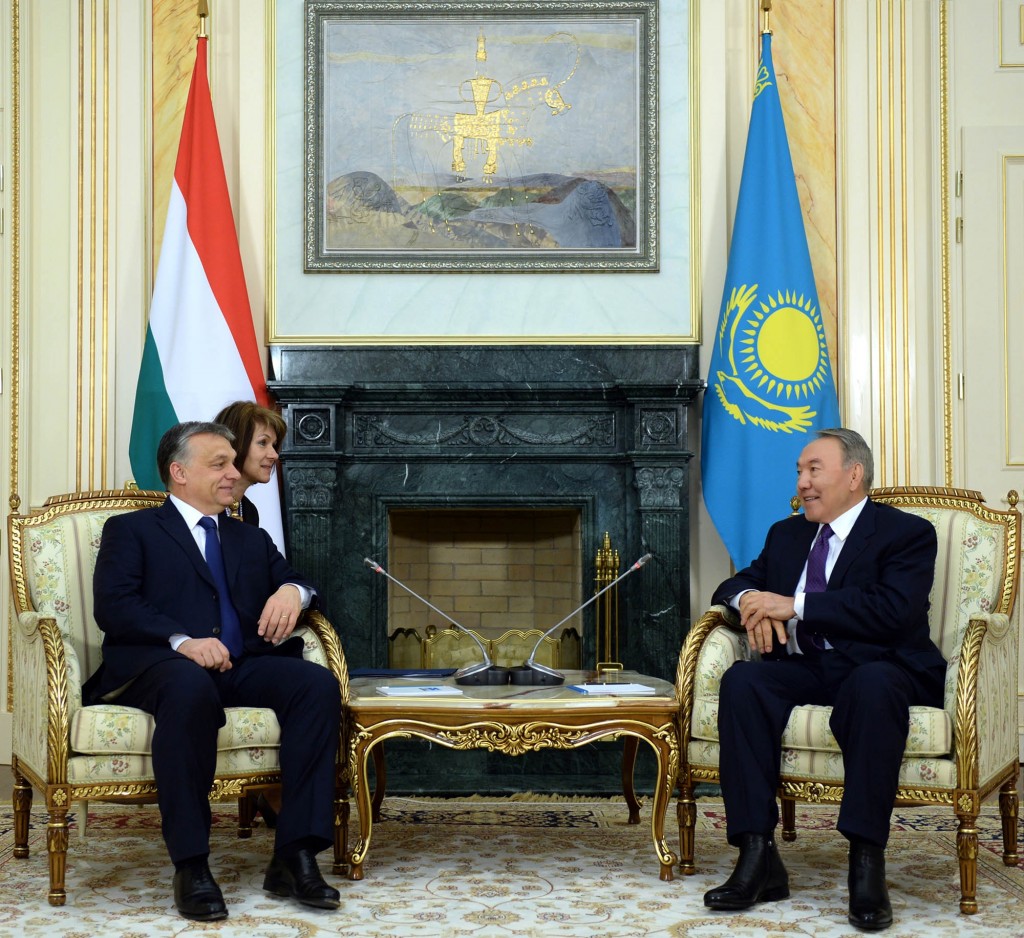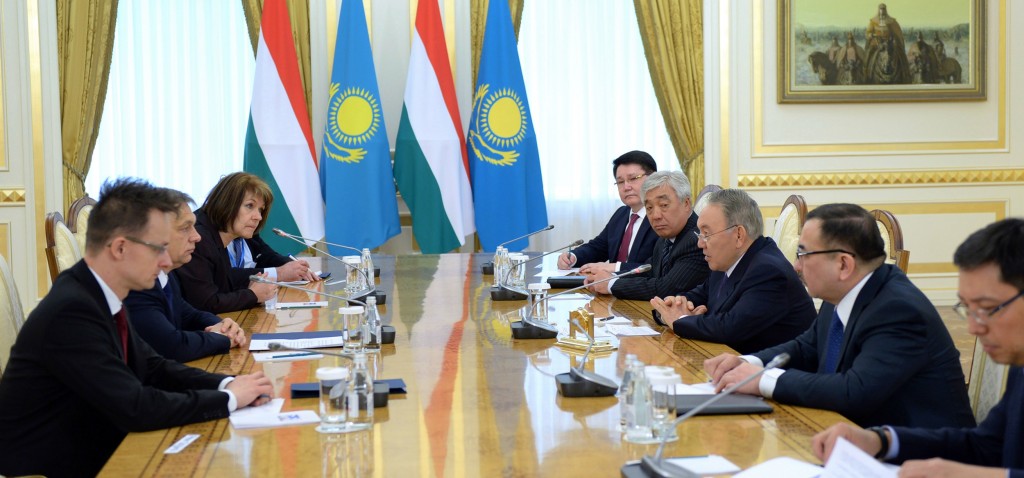ASTANA – Kazakh President Nursultan Nazarbayev met with Hungarian Prime Minister Viktor Orban during the latter’s April 1 official visit to the country.
“We view Hungary as a true friend. Our countries have common historical roots and similar ways of development. For us, Hungary is an important support in Europe,” said Nazarbayev.
The head of state noted the ongoing dynamics of cooperation between the two nations.
“It is not our first meeting. These contacts indicate our desire to strengthen trade and economic relations. We appreciate that Hungary was the first country in the European Union (EU) to sign a strategic partnership agreement with Kazakhstan. We will make every effort to make your visit fruitful,” he said.
In turn, Orban thanked Nazarbayev for the invitation and said that Kazakhstan has a reliable friend in the EU in Hungary, as well as saying one of the streets in Budapest is named Astana.
Orban noted that Nazarbayev’s participation in the upcoming presidential election is a pledge of stability in Kazakhstan and wished the candidate success on behalf of his country.
 The same day, Astana also hosted the Kazakh-Hungarian business forum, where Hungarian Minister of Foreign Affairs and Foreign Trade Péter Szijjártó announced that Kazakhstan and Hungary will create a joint financial fund with $40 million in capital.
The same day, Astana also hosted the Kazakh-Hungarian business forum, where Hungarian Minister of Foreign Affairs and Foreign Trade Péter Szijjártó announced that Kazakhstan and Hungary will create a joint financial fund with $40 million in capital.
“This fund will have $20 million from both sides. The mutual fund will be a financial basis for cooperation between companies of the two countries. There are also plans to create a joint strategic council between the two governments,” said Szijjártó.
“If you want to invest in Hungary, we can offer friendly investment packets, grants, subsidies for education and creation of work places. I have already instructed Eximbank to open credit lines for companies wishing to cooperate. The credit line is $50 million,” he added.
“Despite the fact that two-way trade exceeds $200 million, it is still quite low. In other words, there is huge potential for cooperation, because Central Europe is becoming the driving force in Europe and Kazakhstan is the most dynamically-developing country in the Central Asian region,” Szijjártó stressed.
Hungary intends to increase the number of its small- and medium-sized enterprises (SMEs) willing to invest in Eastern markets, said Szijjártó. Presently, there are about 2.5-3 million SMEs competing in foreign markets and the country intends to increase the number by 12,000.
More than 300 entrepreneurs from the two countries attended the business forum. Following the event, there were plans to sign a number of agreements in areas such as the oil and banking sectors and light and food industries.
Szijjártó met the same day with Kazakh Foreign Minister Erlan Idrissov, where the sides discussed a wide range of issues of bilateral cooperation and the international agenda. Szijjártó paid an official visit to Astana Feb. 19- 20, when the 2015-2016 work plan between the foreign ministries of the two countries was signed. The importance of the successful work of the Kazakh-Hungarian strategic council was also noted at the meeting.

